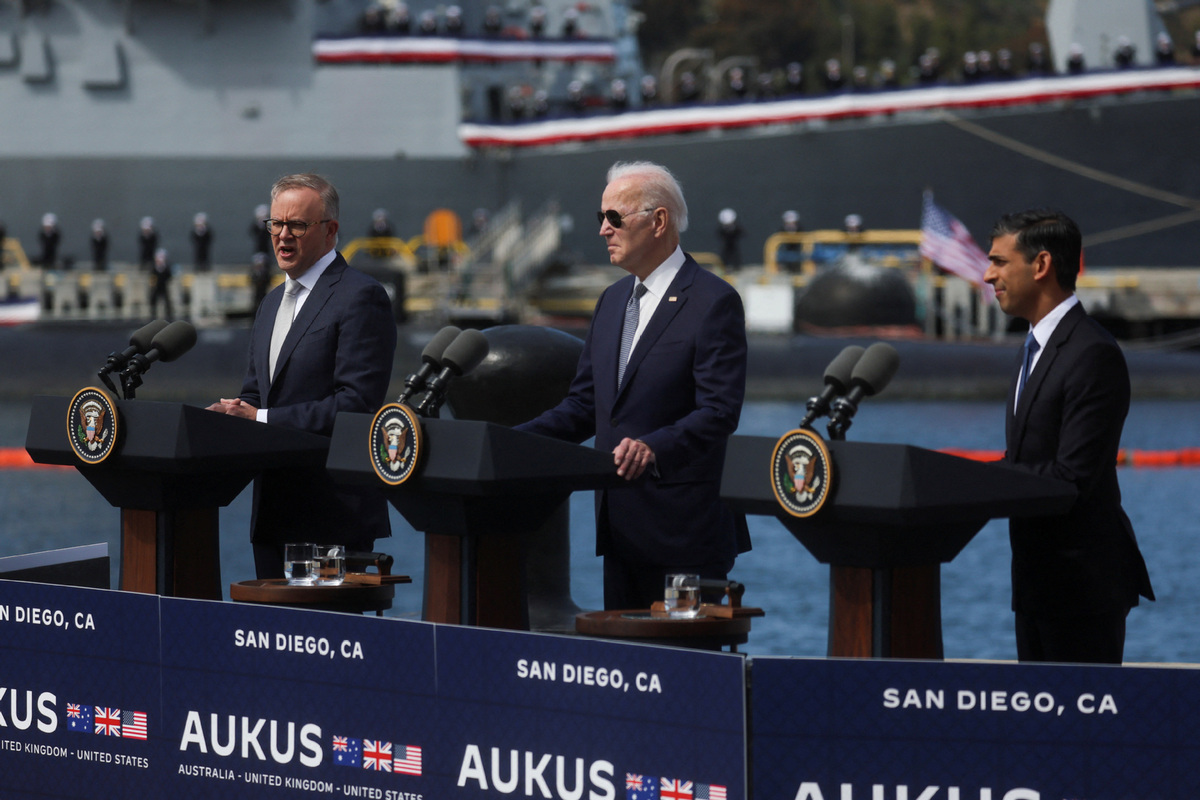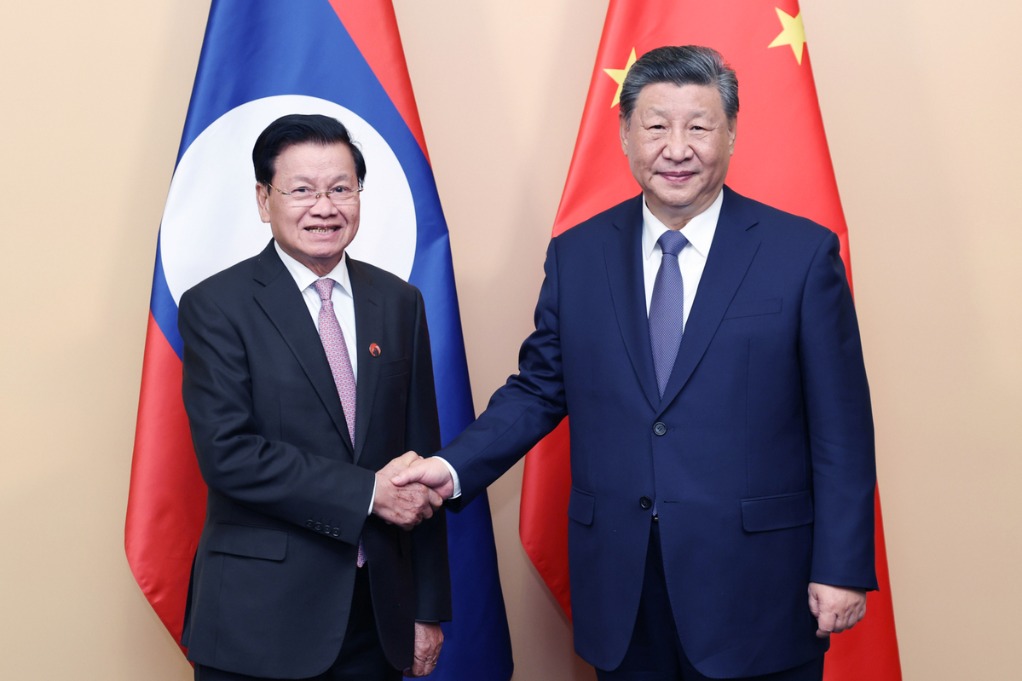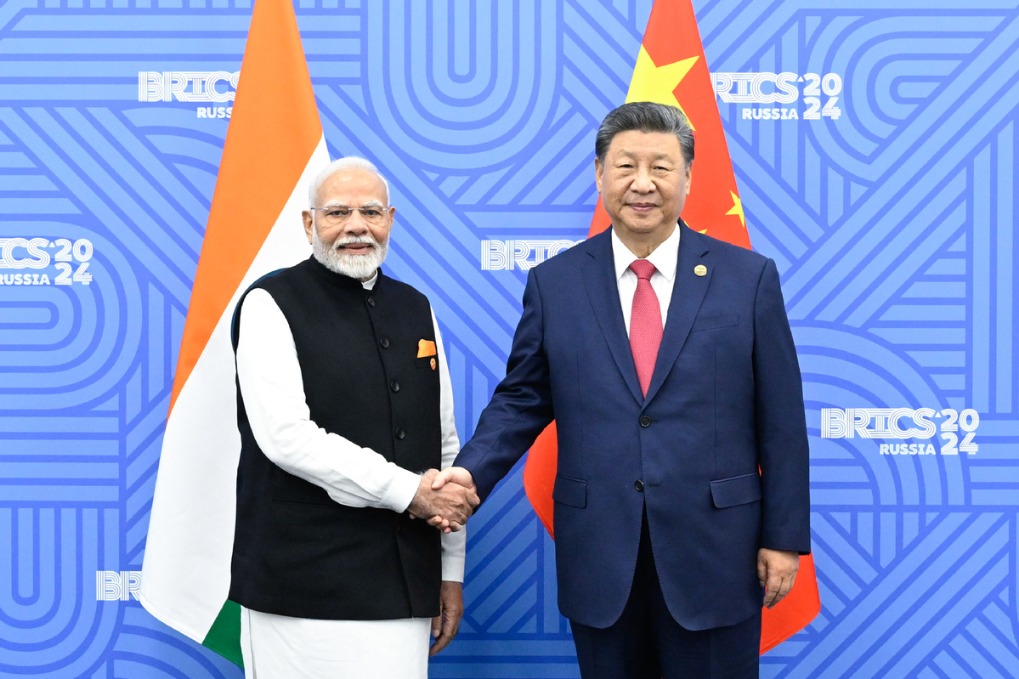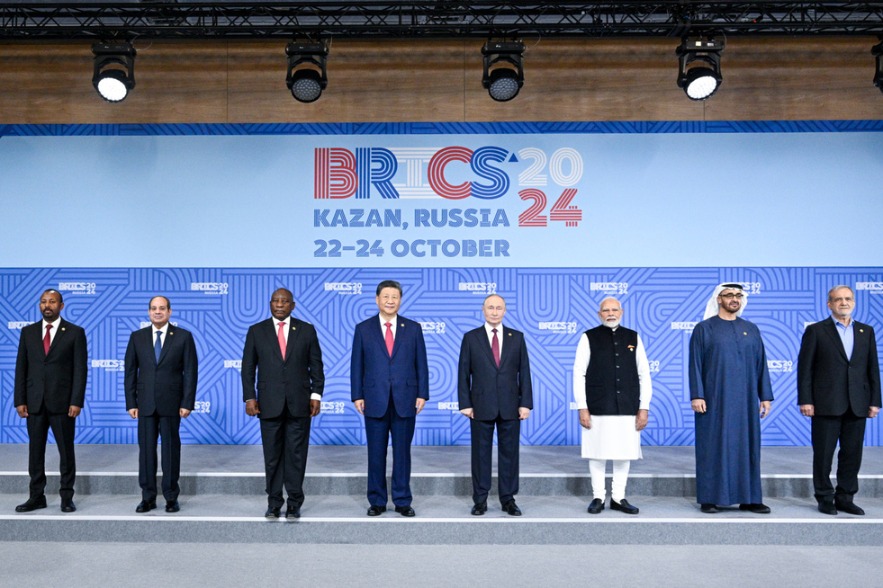Subs deal puts AUKUS on 'wrong path'


China warned on Tuesday that Australia, the United Kingdom and the United States were treading a path of error and danger after they unveiled a deal for nuclear-powered submarines, saying it will incite an arms race, undermine international nonproliferation efforts and harm regional peace and stability.
The plan by the three-nation alliance known as AUKUS to provide Australia with nuclear-powered submarines starting in the early 2030s was announced on Monday during a ceremony at a US Navy base in San Diego, California, attended by US President Joe Biden, Australian Prime Minister Anthony Albanese and British Prime Minister Rishi Sunak.
Under the deal, the US intends to sell Australia three Virginia-class nuclear-powered submarines, built by General Dynamics, in the early 2030s with an option for Australia to buy two more if needed, a joint statement said.
The multistage project would culminate with British and Australian production and operation of a new submarine class — SSN-AUKUS — a "trilaterally developed" vessel based on the UK's next-generation design that would be built in UK and Australia and include advanced US technologies, according to the statement.
Foreign Ministry spokesman Wang Wenbin said at a regular news briefing in Beijing on Tuesday that "the latest joint statement from the three countries demonstrates that they completely disregard the international community's concerns and are walking further on the dangerous and wrong path for the sake of their selfish geopolitical interests".
Wang accused the three Western allies of inciting an arms race, saying the security deal was "a typical case of Cold War mentality".
The sale of submarines constitutes a severe nuclear proliferation risk and violates the aims and objectives of the Treaty on the Non-Proliferation of Nuclear Weapons, the spokesman said.
The three countries should not proceed with this cooperation, and the International Atomic Energy Agency Secretariat should not consult with the three countries on the so-called safeguards arrangement for their nuclear submarine cooperation until consensus is reached by all parties, he added.
Although Biden said that the submarines would be nuclear powered and not nuclear armed, Hong Yuan, a research fellow and military expert at the Institute of American Studies of the Chinese Academy of Social Sciences, warned that the "risky and dangerous" move is essentially equivalent to directly arming a non-nuclear country, Australia, with nuclear weapons.
"As an attack nuclear submarine, the Virginia-class submarine is capable of firing ballistic missiles and can also be modified to launch cruise missiles. Deployment of such strategic weapons could be significant in influencing the maritime and global security landscapes," he said.
The deal will create a sense of insecurity among neighboring countries, pose a huge threat to Asia-Pacific countries and greatly damage peace and stability in the region, Hong said.
After the deal was announced, Russia accused the West on Tuesday of fomenting "years of confrontation" in the Asia-Pacific region.
"The Anglo-Saxon world, with the creation of structures like AUKUS and with the advancement of NATO military infrastructures into Asia, is making a serious bet on many years of confrontation" in the region, Russian Foreign Minister Sergey Lavrov said in televised comments.
The cost of the deal for Australia was estimated to reach $245 billion by 2055.
Hong said that the follow-up costs of submarine maintenance and the training of personnel would be astronomical and undoubtedly would place a huge burden on Australia's economy.
"This move will not bring any benefits to Canberra's maritime security and defense, but the selfish behavior of Washington will make situations worse for all involved in the region," he added.
Li Song, China's permanent representative to the IAEA, condemned the AUKUS nuclear-submarine collaboration, saying the plan constitutes serious nuclear proliferation risks, undermines the international nonproliferation system, will fuel an arms race and threatens peace and stability.
Agencies contributed to this story.

































